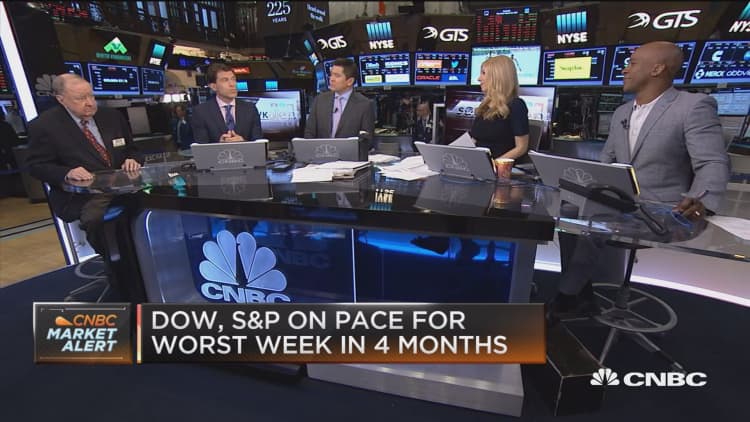
Closely followed trader Art Cashin said Thursday that DoubleLine CEO Jeffrey Gundlach may have played a small role in moving Wall Street's fear gauge higher this week.
Billionaire bond guru Gundlach predicted Tuesday on CNBC that the will fall at least 3 percent by the end of the year, and when that happens, the VIX will double.
"I think the jump (in the VIX) got a big boost from Jeffrey Gundlach," UBS' director of floor operations at the New York Stock Exchange said on "Squawk Alley."
"When (the VIX) started moving on its own, people I think started climbing on board. So, you got to put the Gundlach factor in there somewhere," Cashin added.
The CBOE Volatility Index (VIX), widely considered the best gauge of fear in the market, has soared this week amid heightened tensions between the United States and North Korea. The index is up 44 percent week to date.
Before this week, the VIX held near historical lows around 10 or below this year. It hit an all-time low of 8.84 on July 26.
Regarding North Korea, Cashin said to keep an eye on safe haven trades. On Wednesday, he said that if the situation between the U.S. and North Korea escalates, a flood into safe havens will be the first warning sign.
Traditional safe havens have seen solid inflows as tensions have increased.
Cashin said Thursday that if problems persist it could begin to affect trade.
"We here in the U.S. easily forget that South Korea is a major trading partner of China as is Japan. If that begins to impair, what does that do to the Chinese economy? What does it do to the economies of South Korea and Japan? And what will that do to the world economy?" he said.
"Obviously this market is not saying we're going to war," Cashin added.


